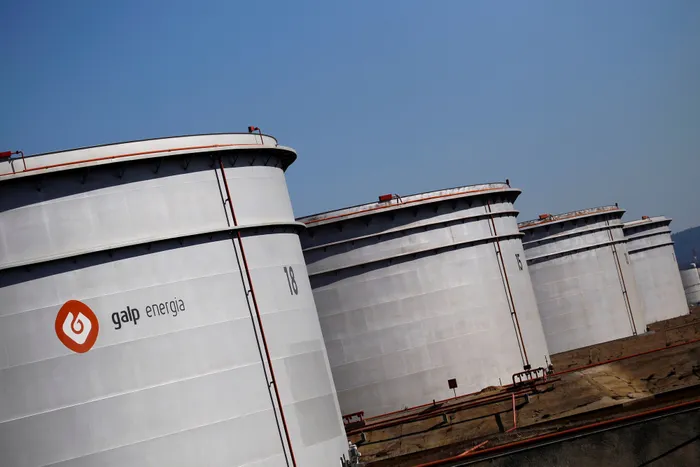New gas, oil discoveries a boost for economic growth

A Galp Energia refinery. Portuguese oil company, Galp Energia, which has been granted the Petroleum Exploration Licence 83 by the Namibian government, says the field may have oil reserves of up to 10 billion barrels, according to the writer. – Picture: ANA
By Sizo Nkala
It looks like Namibia will soon join the small club of African oil-producing countries. This after a Portuguese oil company, Galp Energia, wrapped up its exploration of the Mopane field, along the Namibian coast in the Orange Basin, at the end of April on an optimistic note.
Galp was granted the Petroleum Exploration Licence 83 by the Namibian government. It covers 10,000km².
After conducting successful tests in two wells, which yielded the maximum limit of 14,000 barrels a day, the company said the field might have oil reserves of up to 10 billion barrels. If the estimate is accurate, this will place Namibia at the level of Angola, one of Africa’s major oil exporters, which boasts reserves of 13 billion barrels. Galp is in the process of seeking investment to kick-start the exploitation of oil in the southern African country within the next few years.
The company’s new discovery follows major discoveries made by the oil giants, Shell and Total Energies, in Namibia in 2022, which were estimated at billions of barrels. The two companies are expected to start production by 2026.
Namibia boasts more than 230,000km² of licensed land that is yet to be fully explored with fewer than 20 deepwater wells. If fully explored, it is likely that more viable reserves could be discovered which could propel the country to oil super-power status in Africa.
Even with the discoveries that have been made thus far, Namibia will be on course to producing more than 500,000 barrels a day in the next decade if sufficient investment is secured.
Hence, Namibia could soon be generating handsome revenues from oil exports, especially since the state-owned oil company, the National Petroleum Corporation of Namibia, will also own a stake in the extraction projects. Moreover, the royalties of 5 percent and the income tax of 35 percent will add significantly to Namibia’s fiscus, which can hugely benefit its 2.5 million population.
However, the impact of the prospective oil windfall on Namibia’s socio-economic conditions will depend on how the newfound wealth is managed. Despite being classified as a high middle-income country, Namibia struggles with widespread poverty and enormous inequalities.
Almost a third of its population is classified as poor while 15 percent is described as extremely poor. There are huge inequalities between blacks and whites who make up just 5 percent of the population.
Despite being numerically small, white Namibians dominate the national economy as a result of the apartheid legacy. Namibia emerged as an independent state from colonisation by South Africa’s apartheid government only in 1990.
Though not as rampant as it is in some African countries, corruption is a reality in Namibia. According to the 2024 report by Transparency International (TI), the country is 59th out of 180 in terms of the prevalence of corruption. In 2019, several top government officials, including Cabinet ministers, were embroiled in the so-called Fishrot scandal where they secured fish export quotas for personal enrichment, thus prejudicing the state of significant amounts of revenue.
The fish industry is one of the biggest generators of export revenue in Namibia. If the track record is anything to go by, the prospective oil revenues might be diverted to the pockets of the politically connected at the expense of the impoverished masses. As such, if the corruption is not addressed, it will severely impair the effective governance of the oil resources.
Africa has a long list of cases where the political elite monopolised the control of lucrative oil resources for individual benefit rather than national development. Namibia does not have to look further than its neighbour, Angola, for lessons on the impact of the blatant mismanagement of oil resources.
The Angolan rulers failed to take advantage of the country’s bumper oil reserves, preferring instead to use the revenues for self-enrichment and political patronage. Saddled with heavy debt, economic stagnation and having more than half its population in poverty, Angola has little to show for its oil wealth.
Namibian leaders should learn from the experiences of their African peers to avoid repeating their mistakes. It is important that the extraction of oil be done in an economically, socially and environmentally sound manner that will not leave Namibians worse off than before.
Moreover, Namibia can follow the blueprint from the Middle East oil superpowers such as Saudi Arabia, Qatar and the United Arab Emirates who have managed diversify their economies using petrodollars.
The countries have used the oil revenues to develop new sources of economic growth such as technology, logistics, tourism and construction, among other things, to avoid being dependent on oil. The history of African oil thus far is the history of exploitation, corruption, environmental degradation, poverty and insecurity. Namibia has an opportunity to change the narrative.
Dr Sizo Nkala Research Fellow at the University of Johannesburg’s Centre for Africa-China Studies